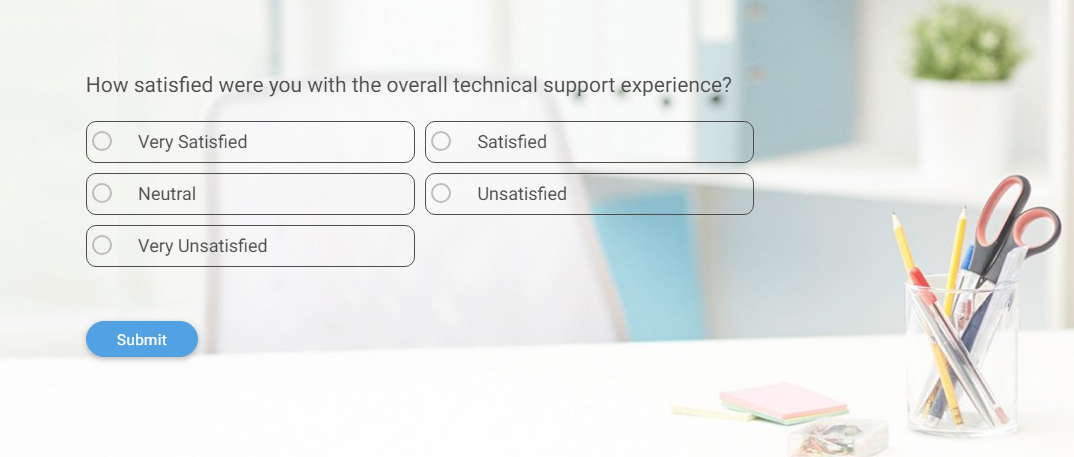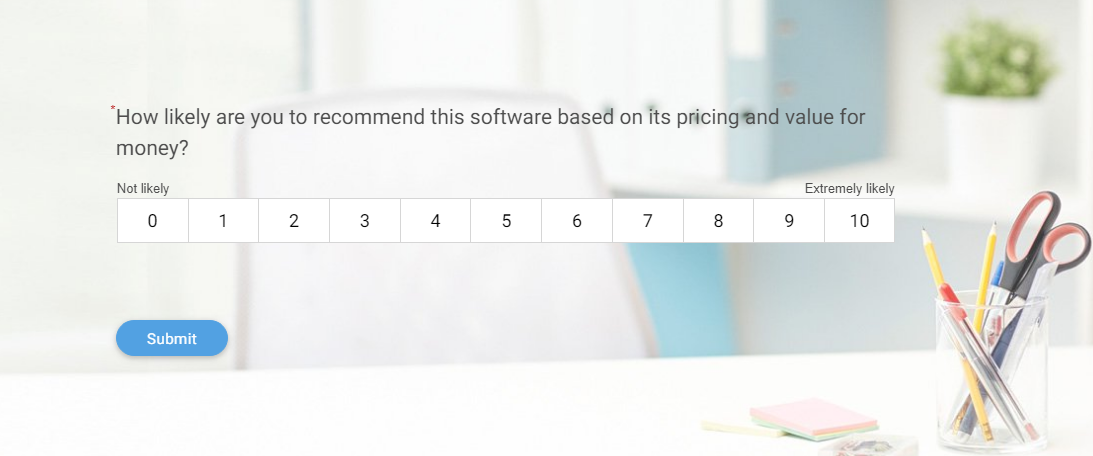
For most businesses today, having an online presence without an app or a website is pretty much impossible. To ensure success, it is essential to continuously monitor and optimize these websites and apps using effective strategies.
One powerful strategy that should not be overlooked is creating a well-crafted in-app software survey. Just offering a service is not enough to please customers. You need to get feedback from them, so you know what to improve.
In this article, we’ll show you some software evaluation survey questions you can use and how to use them. This will help you learn more about your customers and reach your goals better.
What Are Software Survey Questions?
Software survey questions are a set of questions designed to collect feedback and gather insights from users or customers about their experience with a particular software product.
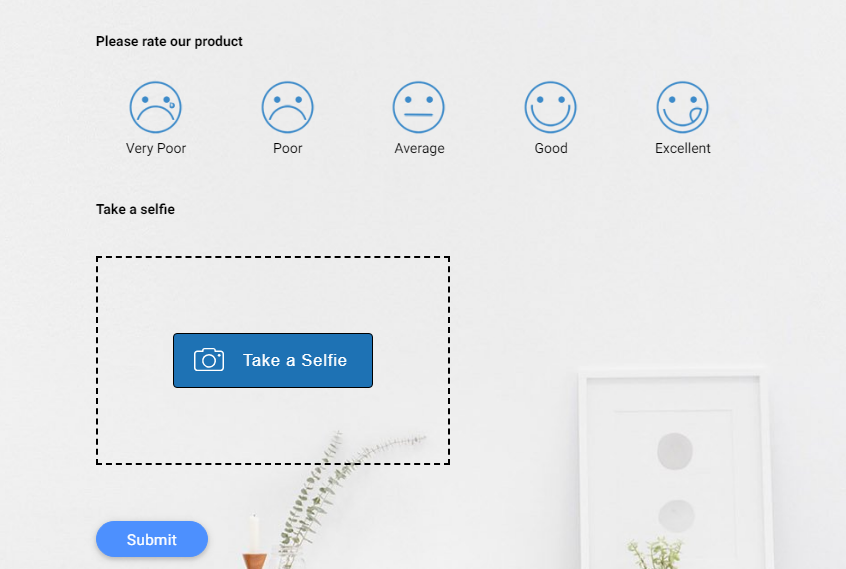
They have become a game-changer in the world of technology due to their ability to provide a direct view of how well a software is performing right from the source, allowing software companies to improve their products and meet customer needs effectively.
20+ Best Software Survey Questions You Should Ask
In order to gather valuable insights and feedback about software applications, it is important to ask a variety of survey questions. Below, we have categorized the types of questions you should consider and provided a mix of question formats for each section:
1. Usability and User Experience
These questions focus on the ease of using the software and the overall user experience.
- On a scale of 1-10, how would you rate the overall usability of the software?
- Did you find it easy to navigate through different features and functionalities?
(Yes/No)
- Were you able to accomplish your tasks efficiently using the software?
(Yes/No)
- Please rate the interface of the software on a scale of 1-5, where 1 represents “not visually appealing” and 5 represents “very visually appealing”.
- How satisfied were you with the responsiveness and performance of the software?
(Very Unsatisfied/Unsatisfied/Neutral/ Satisfied/Very satisfied)
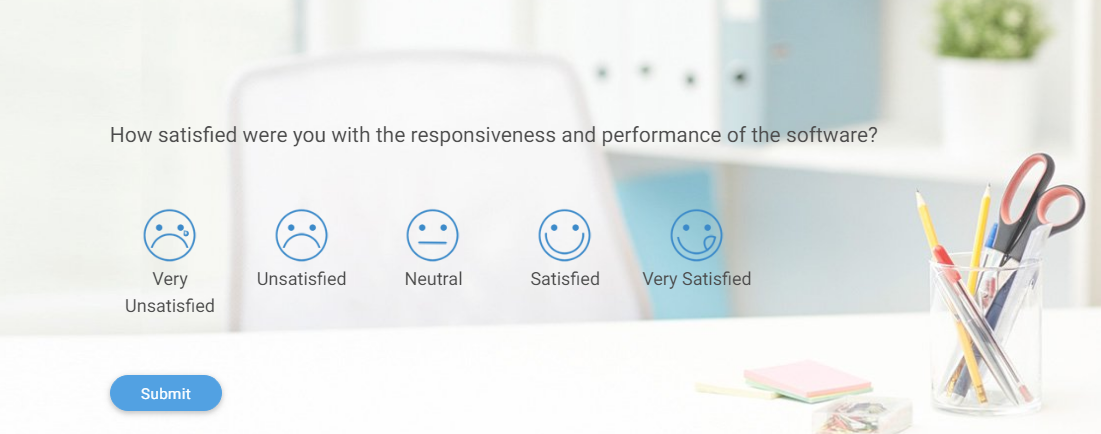
2. Feature Evaluation
These questions aim to evaluate the specific features and functionalities of the software.
- Which of the following software features did you find most useful for your needs? (Multiple Choice)
- Feature A
- Feature B
- Feature C
- None of the above
- Is there any feature missing that you would like to see implemented?
- On a scale of 1-5, how effective was the software in meeting your requirements?
- Have you utilized all the available features?
(Yes/No)
- What improvements would you suggest regarding the existing features?
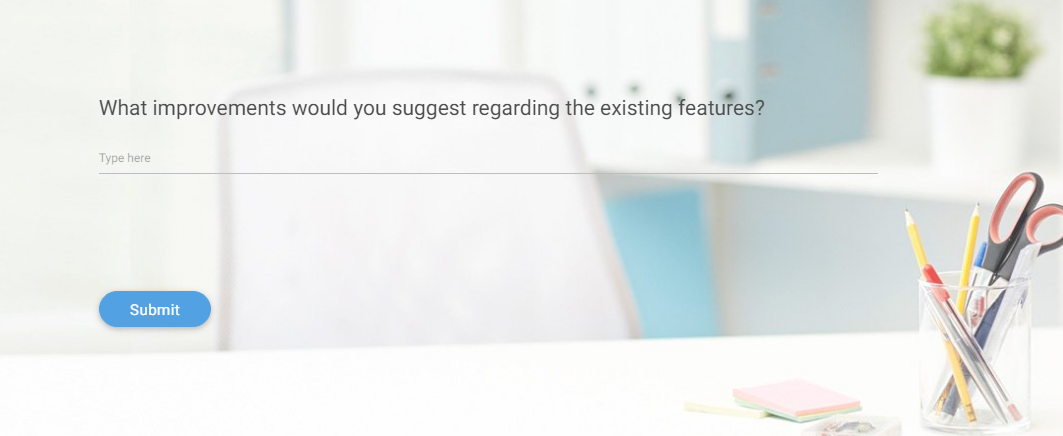
3. Technical Support and Documentation
These questions gauge the effectiveness of technical support and available documentation.
- Did you find adequate documentation or user guides for the software?
(Yes/No)
- On a scale of 1-10, how responsive and helpful was the technical support team?
- Have you encountered any technical issues with the software?
(Yes/No)
- How satisfied were you with the resolution of the technical issues?
- Very Satisfied
- Satisfied
- Neutral
- Unsatisfied
- How satisfied were you with the overall technical support experience?
- Very satisfied
- Satisfied
- Neutral
- Unsatisfied
- Very unsatisfied
4. Pricing and Value for Money
These questions assess the perceived value of the software in relation to its pricing.
- Do you believe that the software offers good value for the price you paid?
(Yes/No)
- Compared to other software solutions, how would you rate the pricing of this software? A. Expensive
- Affordable
- Cheap
- Would you be willing to pay more for additional features or improvements in the software?
(Yes/No)
- Did you receive adequate support and updates for the price you paid?
(Yes/No)
- How likely are you to recommend this software based on its pricing and value for money?
(Likelihood scale: 0-10)
5. Overall Software Satisfaction and Recommendation
These questions provide insights into the overall satisfaction and likelihood of a recommendation.
- On a scale of 1-5, how satisfied are you with the software overall?
- Would you recommend this software to others?
(Yes/No)
- How would you rate your overall experience using the software? (Poor/Fair/Average/Good/Excellent)
- Are there any specific improvements or features that would make you more likely to recommend it?
- How likely are you to continue using this software in the future?
(Likelihood scale: 0-10)
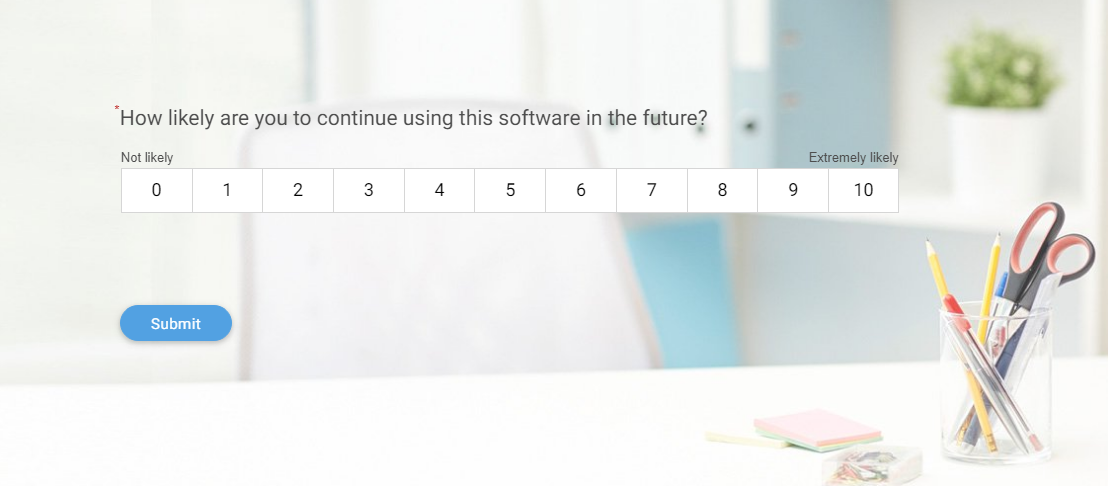
By incorporating a mix of question formats into your software survey, including multiple-choice, rating scale, yes/no, and open-ended questions, you can effectively gather feedback and gain valuable insights for improving your software.
Remember to customize the questions based on your specific software and target audience to ensure the most accurate and relevant results.
Why Do You Need Survey Software Questions?
You must be wondering, “Why exactly do I need these questions, how will they impact my business?”. Well, they are necessary because there are 2 crucial areas where these questions prove to have the greatest impact, namely –
-
Continuous Product Improvement Through Customer Feedback
Customer opinion is inarguably one of the best ways to get a grasp on your software’s potential or current success in the market. As direct investors, it’s only fair for customers to have a say in how your product could be modified to suit them better.
By soliciting feedback from customers and incorporating it into the product development process, businesses can significantly improve the quality of their offerings, address pain points, and stay ahead of the competition.
Software evaluation questions also offer your customers a chance to have their opinions heard, and aside from helping you improve your product, it allows you to improve your customer relationships.
-
Building Customer Loyalty
Apart from improving the software itself, survey questions also help companies measure and build customer loyalty. According to a study, returning loyal customers spend an average of 33% more per order as compared to regular ones, and 26% of customers spend on brands they are loyal to even if there are cheaper options available.
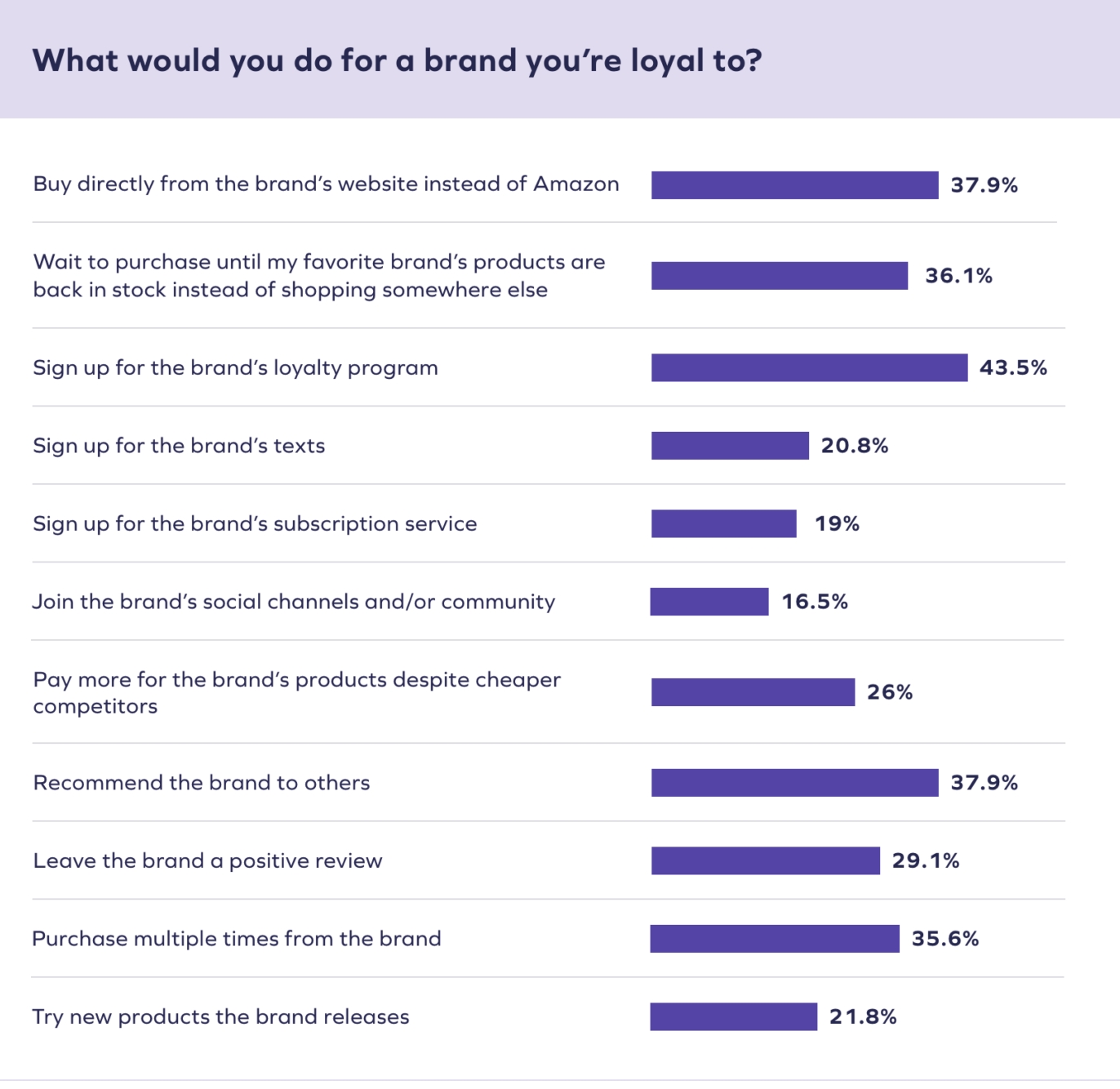
These findings highlight the correlation between understanding customer needs through survey questions and fostering customer loyalty.
To put it succinctly, software survey questions help you:
- Identify areas for improvement: Software surveys help uncover specific pain points and areas where the software can be enhanced or optimized.
- Understand user satisfaction: Surveys provide insights into user satisfaction levels and help gauge how well the software meets their expectations.
- Gather user insights: Surveys provide valuable data and insights about user preferences, needs, and usage patterns that can inform product development and decision-making.
- Enhance user experience: By collecting feedback through surveys, software companies can make informed design decisions that improve the overall user experience.
- Formulate product roadmap: Surveys help prioritize product updates and feature enhancements based on user feedback and preferences.
- Measure software effectiveness: Surveys allow software companies to evaluate the effectiveness and usefulness of their product in meeting user needs and achieving desired outcomes.
- Increase customer engagement: Engaging users through surveys can create a sense of involvement and ownership, fostering a stronger connection between users and the software.
- Stay competitive: Software surveys help companies stay ahead of the competition by continuously seeking feedback and making necessary improvements to their software product.
Tips to Ask the Right Software Survey Questions for Maximum Insights
Asking the right software survey questions is essential for obtaining valuable insights and feedback.
Here are some tips to help you create value-rich survey questions:
1. Define your goals: Clearly state the objectives of your survey and what you hope to achieve. This will guide your question formulation and ensure the survey stays focused.
Pro Tip: Create a list of specific goals for your survey and refer back to it when creating questions to ensure they align with your objectives.
2. Keep questions clear and concise: Ask questions that are easy to understand and don’t confuse respondents. Clear and concise questions will yield more accurate and reliable answers.
Pro Tip: Review each question and simplify or rephrase them to ensure clarity. Avoid using complex or technical language that participants may not be familiar with.
3. Use a mix of question types: Utilize a variety of question formats like multiple choice, rating scales, Likert scale, and open-ended questions. This helps capture different perspectives and provides more comprehensive insights.
Pro Tip: Consider the type of information you want to gather and choose appropriate question formats that best suit your objectives. Use closed-ended questions for quantifiable data and open-ended questions for qualitative insights.
4. Keep bias in check: Avoid biased language or leading questions that may influence respondents’ answers. Aim for neutrality and objectivity to ensure you obtain unbiased feedback.
Pro Tip: Review each question and eliminate any potential bias or leading language. Pilot test your survey with a small group to identify and correct any remaining biases.
5. Focus on actionable feedback: Design questions that will elicit actionable feedback. Ask participants to provide specific suggestions for improvement or highlight areas that are performing well. This will provide actionable insights for future iterations.
Pro Tip: Include questions that encourage participants to provide suggestions or ideas for improvement. For example, “What improvements or additional features would you like to see in the software?”
6. Test and iterate: Before sending out the survey, test it with a small group of users to identify any issues and make necessary adjustments. Pilot testing helps ensure that the questions are clear, relevant, and provide valuable feedback.
Pro Tip: Create a small test group, ideally representative of your target audience, and gather their feedback on the survey. Use their feedback to refine and improve the questions before launching the survey to a larger audience.
Watch: How to Create Online Surveys Easily
Ready to Create Your Own Software Survey Questionnaire?
As we venture into 2024, it is increasingly important for software businesses to gather valuable insights from their customers. Crafting the right survey questions is pivotal in obtaining actionable feedback that can drive product improvements, enhance user experience, and ultimately boost customer satisfaction.
By defining your goals, keeping questions clear and concise, using a mix of question types, minimizing bias, focusing on actionable feedback, and iteratively testing and refining your survey, you can create a powerful tool for understanding your customers’ needs and preferences.
It can be overwhelming to do all of that manually – fortunately, tools like ProProfs Survey Maker make the process way easier. With its user-friendly interface, extensive question types, and robust reporting capabilities, ProProfs Survey Maker empowers businesses to design and administer surveys effortlessly.
So, if you are ready to take your software surveys to the next level, request a demo today.
Gather all the insights that will drive your software’s success in 2024 and beyond!
FREE. All Features. FOREVER!
Try our Forever FREE account with all premium features!

